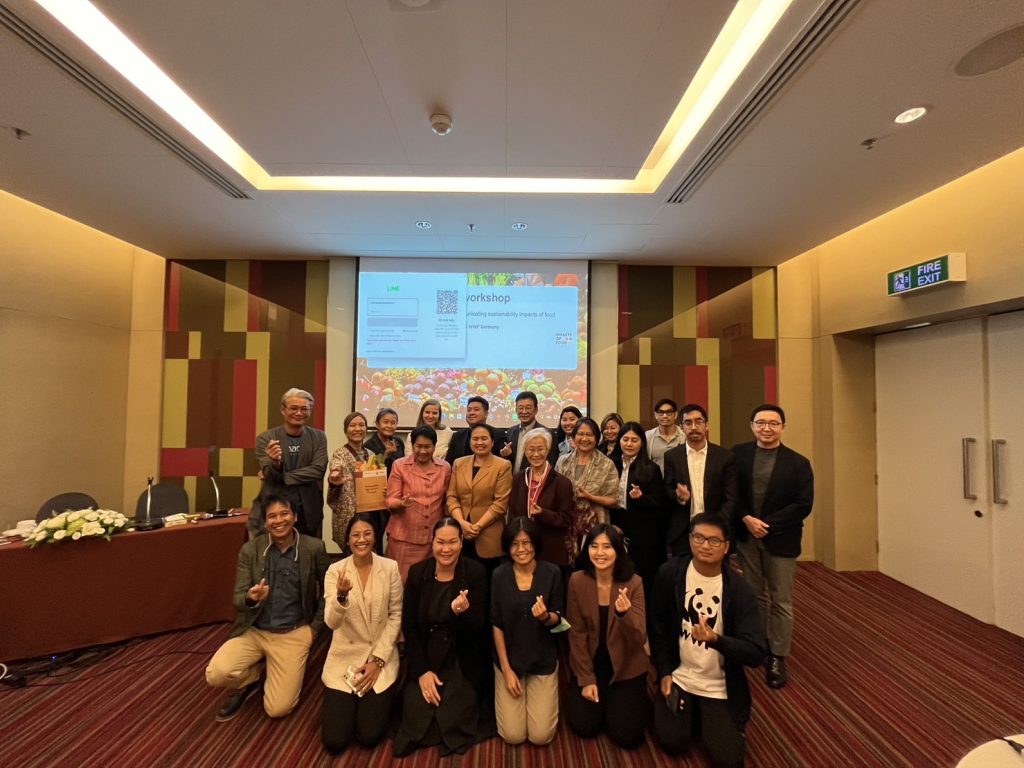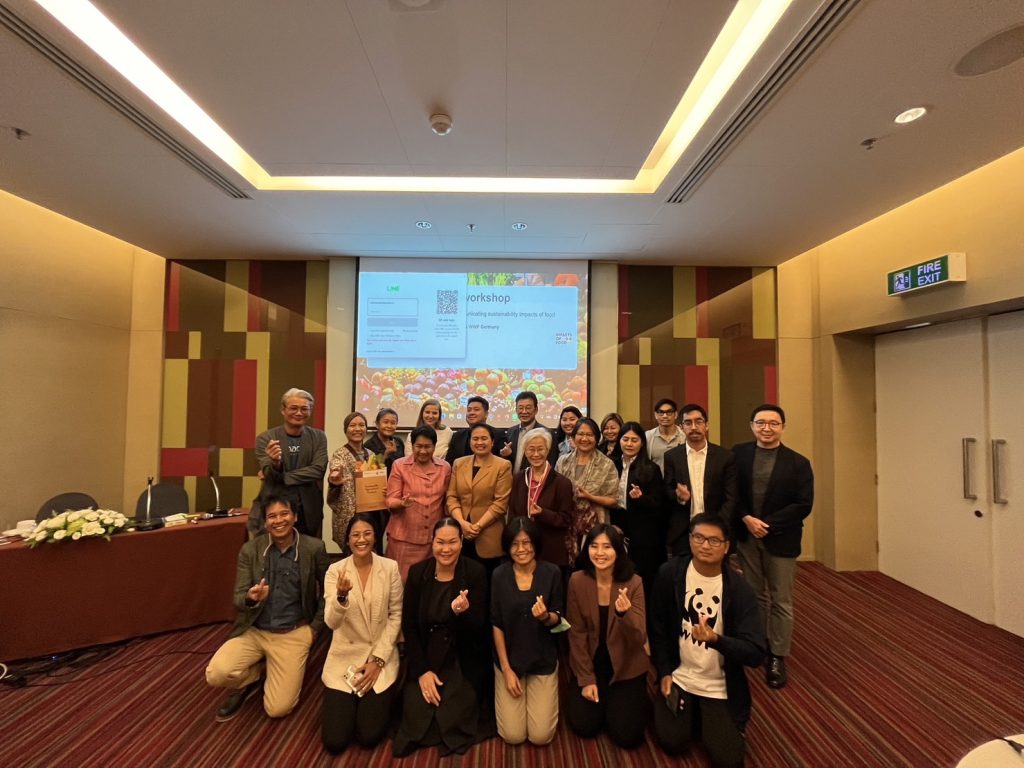In June 2023, the CLIF stakeholder workshop series by WWF was kicked-off in Bangkok, Thailand. A whole day of dialogue was facilitated in order to present and discuss first project results with stakeholders from the region. Participants included representatives from the Thai government, civil society, agri-food business, and organizations facilitating international cooperation. The workshop was conducted by WWF Thailand and WWF Germany.
The main questions on the agenda: Which environmental impacts need to be communicated as part of the CLIF tool, how to communicate them and which other policies must be put in place to support a transition to a more sustainable food system. As a result, food safety and health aspects were identified as key sustainability concerns for consumers in the target region. Animal welfare issues, for instance turned out to be less relevant for consumers and retailers in the region, compared to Germany for example.
An assessment of necessary and feasible policy instruments for a sustainable food system transition in Thailand was on the menu for the afternoon of the workshop. Potential measures were ranked according to their impact, feasibility, scope, and speed of implementation. The measures “Nutrition and health education”, “fiscal measures”, “Standards for food in schools, child-care centres, and other public institutions” received the highest scoring by participants in terms of their impact. It was argued by participants, that education has a particularly high effectiveness due to its ripple effects from schools throughout the whole of society. The measure also received high scores in all other three categories. Barriers for implementing this measure are a lack of budget in (some) schools, competition with current curriculum, and the difficulty of influencing the education plans, which are drafted by the respective ministries. The top-three measures, which were ranked most “feasible” were the policy on fiscal measures, improved nutrition information, declarations and labelling, and nutrition and health education respectively.

